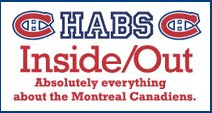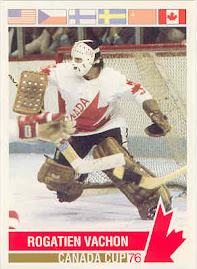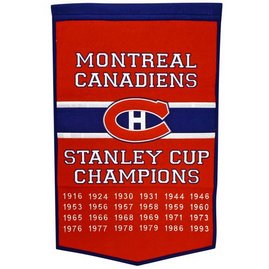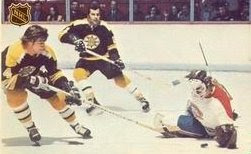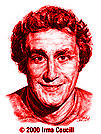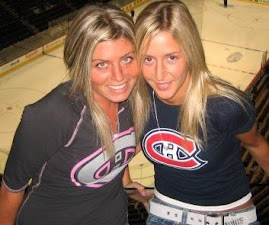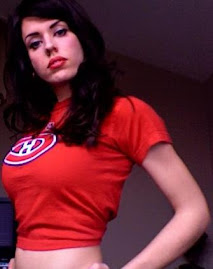
Robert L Note: I found this list of 100 Habs facts at the Sportsnet site, and cruising through it I found the usual misconceptions and erroneous information when it comes to Montreal Canadiens history spoken about from an Ontario perspective. I go off on a rant about this type of research and journalism, but the simple truth is these facts have been misrepresented for so long now, people don't even bother to check up on them. It won't be today that non Canadiens fans will seek to look into such things more deeply, so it becomes my job to set the record straight. What follows here is the Sportnet list of (what they call) facts as they were published at their site. I've added my comments to about 50 of them, to either clarify, correct or further the statement. My precisions are in brackets, highlighted.
1. Jean Perron coached the Canadiens to their 1986 victory in the Stanley Cup playoffs in his first year behind the bench. (Should read behind an NHL bench, to be precise, which is a feat also accomplished by Al McNeil in 1971, Claude Ruel in 1969, and Toe Blake in 1956. Balke actually won Cups in his first five seasons as coach. Jacques Demers won the Cup with Montreal in his first season behind the Canadiens bench in 1993. Pat Burns, in 1989, made it to the final, losing to Calgary in six.)
2. Joe Malone scored the first goal in Montreal Canadiens history. (Malone scored the Canadiens first NHL goal in 1917. Canadiens history began nine seasons earlier, in 1909 - hence the centennial.)
3. Henri Richard leads the franchise for most years in the playoffs with 18 years from 1955 to 1975. (That should be 19 seasons. The only missed year from 1956 to 1975, was 1970.)
4. Larry Robinson holds the club record for most playoff games played in the Montreal uniform at 203. (Robinson also hold the club record for consecutive seasons in the playoffs with 17. Jean Beliveau (16), Bob Gainey (16) and Henri Richard (15) follow.)
5. Canadiens superstar Maurice Richard was the first head coach of the Quebec Nordiques. He coached the first two games and then resigned. He was replaced by Maurice Filion.
6. Maurice Richard is the Montreal Canadiens all time leading goal scorer in the playoffs with 82 goals.
7. Jean Beliveau’s 176 playoff points are the most all time for a Canadiens player.
8. Maurice Richard has scored three goals in one game on seven occasions in the playoffs. (Includes four goals on two occasions and one five goal game.)
9. In 1916 the Canadiens beat the Portland Rosebuds of the Pacific Coast Hockey Association to win their first Stanley Cup.
10.The Canadiens and four other NHA team executives formed the NHL in 1917. (The other three clubs were the Montreal Wanderers, the Ottawa Senators, and the Toronto Arenas.)
 11. In 1919, tragedy struck the Stanley Cup final when the Spanish Flu pandemic hit Seattle, and Canadiens star Joe Hall died. The remainder of the series was cancelled. (The series was tied at two wins apiece, with Game 4 ending in a scoreless tie. The epidemic actually hit the city of Victoria, B.C. first, where the Canadiens had become infected while practicing there. Joe Hall died after the cancellation of the final two games.)
11. In 1919, tragedy struck the Stanley Cup final when the Spanish Flu pandemic hit Seattle, and Canadiens star Joe Hall died. The remainder of the series was cancelled. (The series was tied at two wins apiece, with Game 4 ending in a scoreless tie. The epidemic actually hit the city of Victoria, B.C. first, where the Canadiens had become infected while practicing there. Joe Hall died after the cancellation of the final two games.)12. The Canadiens had the worst record in the league by the 1935-36 NHL season. Stunned by such a horrible performance, the NHL gave the Habs rights to all French Canadian players for two years. (Barely a shred of truth here! In 1936, the NHL gave the Canadiens the rights to the best Quebec born players not already signed to C-Forms for seven seasons, ending in 1943. Due to the best prospect already having been scooped up, the Canadiens only used the provision 10 out of 14 times. Most barely played for the Canadiens, if they even made the club at all. Most were sent to their Providence Reds farm club. They were: Jean Pusie (1936), Maurice Crogan and Edouard Ambois(1938), Joffre Desilets and Armand Raymond (1939), Gerald Tapin (1940), Marcel Bessette and Aime Renaud (1942), Ronald Forget and Maurice Courteau (1943). Only Desilets, Raymond, and Pusie would play for the Habs.)
13. In 1945, Rocket Richard made NHL history by becoming the first player to score 50 goals in one season, reaching the mark on the final night of the season. The night before in Montreal, he missed scoring his fiftieth on a penalty shot.)
14. In 1957, brothers Tom and Hartland Molson, owners of the Molson brewery, purchased the team.
15. Between 1951 and 1960, the Canadiens made the finals every year, winning six times (Including a record five straight from 1956 to 1960, and in 1953. In 1954, they lost in overtime of the seventh game to Detroit. Doug Harvey reached up to swat down a dump in shot by the Wings Tony Leswick and in ended up in the Canadiens net. The following year, the Rocket Richard - less Habs again went seven again the Wings before losing. With a little better fortune, it could have been eight in a row).
16. In 1959, goalie Jacques Plante became the first goalie to regularly wear a mask. (If you've ever seen "Silence Of The Lambs", you'll know what he looked like.)
17. When Rocket Richard was suspended for the rest of the season in 1955 for striking an official in a game against the Detroit Red Wings. Montrealers rioted in the streets, causing millions of dollars in damage. The Canadiens had to forfeit the game, and went on to lose in the finals to the Red Wings. (The Canadiens were forced to forfeit the game because NHL President Clarence Cambell, against sounder judgement and warning from local police, showed up for the game after suspending Richard, thus causing the riot. The forfeited game cost the Canadiens two points in the standings, which was the margin Detroit needed with three games left to surpass Montreal in the standings. Game seven of the playoff was then played on Detroit ice. Montreal lost the final, 4 games to 3).
18. In 1956 the Canadiens established a farm team in Peterborough, now known as the Peterborough Petes of the Ontario Hockey League. (The club was then known as the T.P.T.'s, which stood for Toronto - Peterborough Transport, the team's sponsor. It's first coach was Scotty Bowman.)
19. The Canadiens lost to the Maple Leafs in the 1967 Stanley Cup Final, the last time the two hated rivals met each other in the final round and the last time Toronto won the Cup.
20. The Canadiens missed out on a playoff spot in 1970 on the final day of the regular season thanks to a tiebreaker and since Toronto missed out as well, it meant the only time in NHL history no Canadian teams made the playoffs. (The Canadiens were eliminated by a goal differential caused by a thrown game between the Red Wings and Rangers. Knowing the Rangers were four goals behind Montreal in the tiebreaker, Wings coach Sid Abel "rested" his better players, allowing for a 9-5 win by New York. The Rangers fired 65 shots at the Detroit net.)
 21. In 1976-77, the Canadiens set a NHL record by losing only eight games in an 80 game schedule. (The team record was 60-8-12. In the 1943-44 season, the Canadiens went 38-5-7 in a 50 game schedule.)
21. In 1976-77, the Canadiens set a NHL record by losing only eight games in an 80 game schedule. (The team record was 60-8-12. In the 1943-44 season, the Canadiens went 38-5-7 in a 50 game schedule.)22. In 1995 the Canadiens missed the playoffs for the first time in 25 years. (The season had been shortened to 48 games due to a player's strike.)
23. In December 1995, after Patrick Roy allowed nine goals against the Detroit Red Wings and after head coach Mario Tremblay pulled him well after the game was out of reach, Roy approached then team president Ronald Corey and told him, "I just played my last game in this town.” (He'd play in the town again as a member of the Colorado Avalance. Roy said to Corey, "I've played my last game for the Montreal Canadiens".)
24. On March 11 1996, the Canadiens defeated the Dallas Stars 4-1 in the final game at the historic Montreal Forum. (Andrei Kovalenko, the most disposable element of the Roy trade, scored the final goal in the Forum.)
25. Current owner George N. Gillett Jr. was the Canadiens only interested buyer when the Molson family sold it to him in 2001. (Totally untrue! Several factions were interested, but raising the needed collateral was a problem with financial institutions scared off by the perceived decline in value of the franchise. Former Canadiens star Dickie Moore, was a most interested party caught in this dilema. Former Nordiques owner Marcel Aubut also attempted to form a buyers group. Other prominant Montreal and Quebec businessmen were also at the same stage when Gillett bought the club.)
26. On November 22, 2003, the Canadiens participated in the Heritage Classic in Edmonton, the first outdoor hockey game in the history of the NHL. (It was the first regular season outdoor game. Tampa and Los Angeles had previously played on artificial ice during an exhibition game. Montreal beat the Oilers 4-3.)
27. On September 19, prior to the start of the 2005-06 season, the Canadiens announced that they had adopted Youppi!, the popular former Montréal Expos mascot who was left behind when the Expos moved to Washington. (The press released at the time "joked" that the club had signed him as a free agent.)
28. The championship season in 1992-93 still marks the last time that a Canadian team won the Stanley Cup. (At least 15 years isn't 40!)
29. The Canadiens have won 24 Stanley Cups (including their first in 1916, before the NHL existed), more than any other team. (In total for both the NHA and NHL, there are 26 league titles for the Canadiens.)
30. The team moved to the Montreal Forum for the 1926-27 season. In 1996, the Habs moved from the Montreal Forum, their home during 71 seasons and 22 Stanley Cups, to the Molson Centre. (In 1926, the club shared home ice with the Montreal Maroons.)
31. The Canadiens were founded by J. Ambrose O'Brien on December 4, 1909 as a charter member of the National Hockey Association. (The actual founding date was December 2, 1909, when O'Brien reached an agreement with Wanderers president Jimmy Gardner. The deal was announced two days later.)
32. According to NHL.com, the first man to refer to the team as "the Habs" was American Tex Rickard, owner of Madison Square Garden, in 1924. Rickard apparently told a reporter that the "H" on the Canadiens' sweaters was for "Habitants." It actually stands for hockey. (Rickard was a Texas born promoter, who had spent time in the province of Quebec. He was familiar with the term "Habitants" in regards to rural farmers. It was his notion that this was where Canadiens players originated from.)
33. Guy LaFleur is the team’s all time points scoring leader. (Lafleur is never spelled with a capital F.)
34. Henri Richard has played the most seasons at 20 and most games at 1256.
35. Maurice Richard leads the club in goals with 544.
36. Guy Lafleur has the most assists in club history with 728.
 37. 1980's enforcer Chris Nilan has the most penalty minutes in club history with 2,248. (Nilan bought the penalty box at the Forum closing auction.)
37. 1980's enforcer Chris Nilan has the most penalty minutes in club history with 2,248. (Nilan bought the penalty box at the Forum closing auction.)38. Most shutouts: George Hainsworth, 75.
39. Most Stanley Cups: Henri Richard, 11.
40. Most goals in a season: Steve Shutt & Guy Lafleur, 60.
41. Most assists in a season: Pete Mahovlich, 82 (1974-75).
42. Most points in a season: Guy Lafleur, 136 (1976-77).
43. Most shutouts in a season: George Hainsworth, 22 (1928-29)* League record.
44. Jean Beliveau, 1961-71 is the longest serving captain in team history. (Beliveau served ten seasons as captain, Saku Koivu is beginning his ninth season as captain, Emile "Butch" Bouchard and Bob Gainey served eight seasons each.)
45. Saku Koivu, 1999 to present is the first non-Canadian captain in club history. (False. American born Chris Chelios was one of two Canadiens captains named for the 1989-90 season.)
46. Dick Irvin, 1940-55 is the longest-serving head coach in team history. (Toe Blake coached from 1955 to 1968.)
47. In the Hockey Hall of Fame, the Canadiens boast the second most enshrined Hall of Famers with 42. All of their inductees are from Canada with the exception of former defenceman Joe Hall, who was from England. (Misleading at best! The Canadiens have 44 enshined members, not counting coaches and managers. The Bruins are listed as having 46 members, but their total includes long time Canadiens Sprague Cleghorn, Sylvio Mantha, and Guy Lapointe - three player's whose reputation was made wearing the CH. The HHOF lists 54 Canadiens players as being in the Hall, but 10 of those are not counted by the Habs as they have played two seasons or less with the club, and made their names elsewhere, prior to, or preceding their tenures with the Canadiens. Rod Langway was born in the U.S.A.)
48. The Canadiens have retired 13 numbers, by 14 players, in their history, the most of any team in the National Hockey League, and the fourth highest total of any North American professional sports franchise. 11 of the honourees were born in Canada. (All 14 players are Canadian born.)
49. Patrick Roy will have his No. 33 retired in a pregame ceremony on November 22, 2008. (The same night Wendel Clark has his jersey "honoured" in Toronto.)
50. The Bruins and Canadiens have played each other more times than any other two currently existing teams in NHL history. The rivalry is considerably one sided, with the Canadiens winning 24 out of 31 of their head to head playoff series, and all seven of the Final series.
 51. In 1956 Jean Beliveau was the first NHL'er to land on the cover of Sports Illustrated.
51. In 1956 Jean Beliveau was the first NHL'er to land on the cover of Sports Illustrated.52. Serge Savard, with eight Stanley Cups, has the record for most by a NHL defenceman. (Next is Habs Jean Guy Talbot with 7 - and he's not in the HHOF!)
53. Larry Robinson owns the team record for best +/- in a season with +120 in 1976-77.
54. The club’s longest winning streak is 13 games (03/16/1987 - 04/12/1987) regular season: 9, playoffs: 4.
55. The longest undefeated streak in team history is 28 games (23-0-5) from 12/18/1977 to 02/23/1978.
56. The longest losing streak is 12 games set from 02/13/1926 to 03/13/1926.
57. The most team goals scored in a season is 387 set in 1976-77.
58. The most team goals scored in a single game is 16 in a 16-3 win over Quebec in 1920.
59. The most goals allowed in a single game is 11 (six times) most recently on Dec. 12, 1995, Patrick Roy’s last game as a Canadiens. (That keeps being brought up! The Canadiens acquired Roy with the 51st pick in the 1984 draft from trading Robert Picard to Winning. They acquired Picard in a trade with Toronto for goalie Bunny Larocque.)
60. Toe blake won eight Stanley Cups as a coach between 1956 and 1968.
61. Jean Beliveau was the first ever receipient of the Conn Smythe Trophy in 1965, with three game winning goals in 13 playoff games. (Oddly, or perhaps not, the great evalauator of talent Smythe once scoffed at the notion of Beliveau being the best non NHL player in 1952. He regarded Eric Nesterinko as being superior!)
62. Current Canadiens GM Bob Gainey had his name misspelled on the Stanley Cup in 1975-76. It was spelled “Gainy.” (Jacques Plante's name is mispelled three times, three different ways!)
63. In 1916, The Canadiens are identified as the “Canadians” on the Cup.
64. In 1965 when they won their 12th Stanley Cup, Maurice Richard was working as assistant to the president and is listed on the Cup as “ass to press.”
65. After winning the 1924 Cup, the Canadiens headed over to owner Leo Dandurands house for a drink. Georges Vezina and two other players crammed into a Model-T but the car stalled on a Cote st. Antoine Hill. They left the Cup on the curb when they pushed the car up the hill, before driving back later to pick it up in the same spot they left it. (It was a flat tire that needed changing, and it was a totally blasted Sprague Cleghorn who was guilty of leaving the Cup behind.)
66. Six Montreal teams have won the Cup including the Canadiens, AAAs, Victorias and Shamrocks. In all there have been 41 titles for the city. (The other two were the Wanderers and Maroons.)
67. Jean Beliveau’s name appears the most times on the Cup at 17. Ten as a player, and seven as senior VP from 1973-93.
68. The then longest Cup drought in team history ended in 1944 when coach Dick Irvin created the punch line with Richard, Toe Blake and Elmer Lach. They scored 10 of 16 goals in final. (The 13 year dryspell is now the second longest, and the current 15 seasons is the new record.)
69. In 1954 Irvin told the Habs not to shake hands with the Red Wings after losing the Final. There was a white hot rivalry and they lost in Game 7. “If I had shaken hands, I wouldn’t have meant it,” said Irvin.
70. Despite his greatness, Rocket Richard never won a scoring title. The closest he came was finishing one point behind teammate Bernie Geoffrion, 75 points to 74. (Thanks in no small part to his punching a referee with three games to go in 1955 and being suspended. Geoffrion was given death threats and booed when he passed Richard a week later.)
 71. In its 72 year history 16 cups were presented at the Montreal Forum.
71. In its 72 year history 16 cups were presented at the Montreal Forum.72. The 1989 Calgary Flames were the only visiting team to win the Cup on Forum ice.
73. During the 1971 Finals and in the midst of a five game benching, Henri Richard called coach Al Macneil “the worst coach that I have ever known.” In Game 7 Richard returned to score twice including the Cup winner. (Richard's role was reduced, but the most he was benched for was one period. He called McNeil, "The worst coach I have ever played for.")
74. The seeds of the NHLPA were planted at the 1956 all star game in Montreal, spearheaded by Ken Lindsay and Doug Harvey. (That would be Ted Lindsay, of the Detroit Red Wings.)
75. Canadiens forward Bernie “Boom Boom” Geoffrion is credited with inventing the slapshot in the 1950s. 76. Maurice Richard has the most hat tricks in team history with 26. (The Boomer only popularized it. The shot is as old as hockey itself. Canadiens star Didier Pitre was known for his slapper in the early years of the NHA. It terrified Ottawa goalie Riley Hern so badly, he retired because of it.)
77. Guy Lapointe’s 28 goals in the 74-75 season are the most in Canadiens history by a defenceman. (Sheldon Souray came close in 2006-07, with 26. Other Habs defensemen with 20 include Mathieu Schneider, Chris Chelios, and Serge Savard.)
78. The first goalie ever selected first overall in the NHL Draft was the Canadiens Michel Plasse in 1968. (The Canadiens were using a new version of a territorial rights rule from 1963 to 1969 to select Plasse. The draft was then known as the Amateur Draft, and it's creation involved the phasing out of players signed to C and B Form contract. Since the Canadiens were the club that had the most players signed under the older contract terms and were set to lose the rights to the most players under the phasing out, Sam Pollock bargained for and gained the rights to use the first two picks in drafts from 1963 to 1969 to select unsigned Quebec born players only. The option was passed over for the first five seasons. After selecting Plasse in 1968, he used the second pick on Roger Belisle. In 1969, Pollock chose Rejean Houle and Marc Tardiff.)
79. Ken Dryden was drafted by the Boston Bruins, 14th overall in the 1964 Amateur Draft. The Canadiens acquired him for three players, none of whom ever played a single game in the NHL. (Dryden was acquired for two players, not three. The deal was the rights traded to Montreal by Boston with Alex Campbell for Guy Allen and Paul Reid on June 28, 1964. The deal was originated by Bruins GM Milt Schmidt, who desperately wanted Reid. Dryden did not learn that he was drafted by the Bruins until 1974 as Boston never phoned to say they had selected him. Days later, he was acquired by Montreal.)
80. When Guy Lafleur first joined the team he was asked to wear Jean Beliveau’s number but refused, saying the pressure would be too much to live up to. (Lafleur was not asked to wear it, he was offered it by Beliveau.)
81. While GM of the Winnipeg Jets in 1979, former Canadien John Ferguson tried to sign former teammate Henri Richard for the Jets playoff run following an old timers game. Richard, who had retired in 1975, declined.
82. Guy Lafleur was the first rookie in the modern era to record three hat tricks in one season.
83. Between 1971 and 1973 the Canadiens went a club record 185 consecutive games without being shutout.
84. Doug Jarvis has the club record for most consecutive games played at 560. (Jarvis also won Cups in his first four season, surpassed only by Henri Richard, who was on the five Cups from 1956 to 1960.)
 85. Maurice Richard and Bert Olmstead share the club record for most points in a single game with eight.
85. Maurice Richard and Bert Olmstead share the club record for most points in a single game with eight.86. Jacques Plante owns the club records for most games played (556) and wins (312) by a Canadiens goaltender.
87. In 1986, 20 year old Canadiens goalie Patrick Roy became the youngest player to win the Conn Smythe Trophy.
88. The Montreal Canadiens NHL record of 32 consecutive winning seasons ended in 1983-84 when they finished 35-40-5.
89. During the 1988-89 season, Patrick Roy went undefeated at the Forum posting a 25-0-4 mark.
90. The Canadiens team motto is: To you from failing hands we throw the torch. Be yours to hold it high.
91. In 1945, Rocket Richard made NHL history by becoming the first player to score 50 goals in one season, reaching the mark on the final night of the season. (Second time I read this, I think! I'll replace this double post with this: In the 1919 playoffs - the year the Cup was cancelled due to influenza, Newsy Lalonde scored 17 goals in 11 playoff games, in cluding six against Seattle.)
92. In 2002 Jose Theodore became the first Canadiens goalie to win the Hart Trophy as NHL MVP. (That should read the first since Jacques Plante in 1961-62.)
93. Goaltender Carey Price was selected 5th overall by Montreal in the 2005 Entry Draft. The Canadiens gained their draft position via a lottery following the lockout. (It was a weighted lottery based on standings over the three previous seasons.)
94. Jacques Plante won the Stanley Cup five consecutive years from 1956-60 and his name was spelled differently every time on the Cup.
95. Larry Robinson set a club record for most points in a season by a Canadiens defenceman with 85 (19-66) in 1976-77.
96. The Royal Canadian Mint is releasing over 10 million one-dollar coins commemorating the Canadiens' 100th anniversary. (Collect them all!)
97. During the 2008-09 season, the Canadiens will host 12 Centennial Jersey Nights, with players wearing past jerseys.
98. When the Edmonton Oilers broke the record for the longest undefeated streak to start a season in 1984-85, they surpassed the 1943-44 Canadiens start of 11-0-4.
99. A movie is slated for release on the storied hockey club's 100th birthday next year. "Pour toujours, les Canadiens" (The Canadiens Forever) has begun filming in earnest and will include members of the Canadiens past and present. (Ernest will not be in the movie!)
100. Canadiens coach Toe Blake was fined a then astronomical $2,000 for punching referee Dalton McArthur during the 1961 playoffs. (Blake walked the width of the ice to smack him. It was game three of the semi final, and the Canadiens had just lost 2-1 in overtime, in what many have called the dirtiest game ever played. Montreal evened the series at 2 games with a 5-2 win on Chicago ice two nights later. Hawks goalie Glenn Hall then shut the door for a pair of 3-0 blanking. Blackhawks haven't won a Cup since.)
We'll that's all folks. Maybe Sportsnet will get all these right in time.
.


























 Price: "Je n'ai qu'à rebondir"
Price: "Je n'ai qu'à rebondir"














